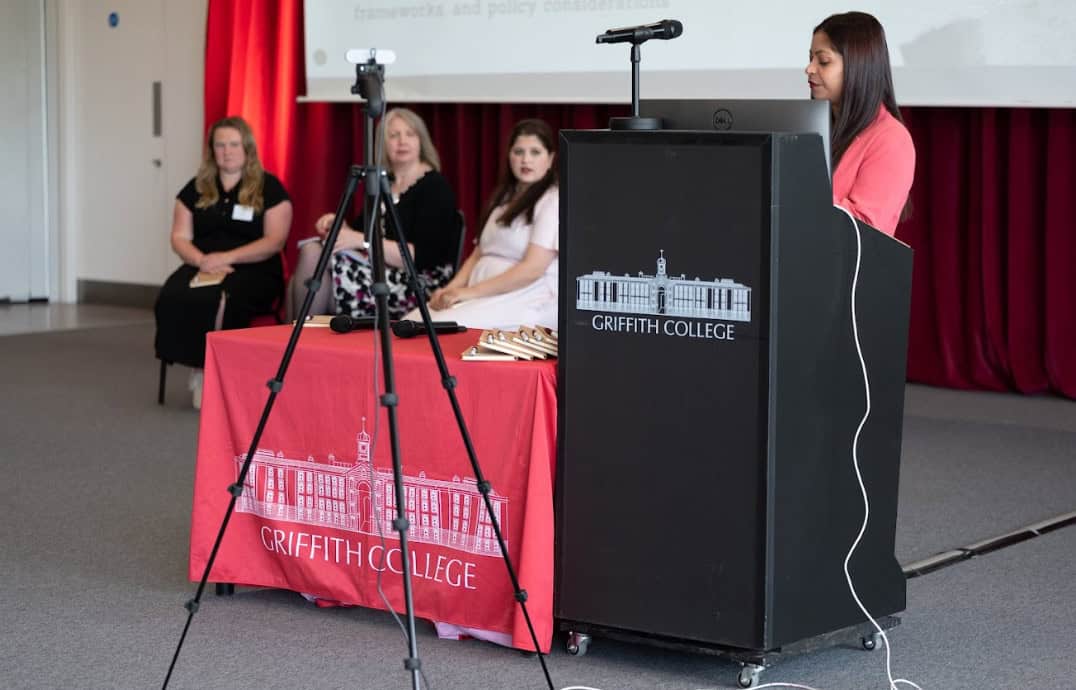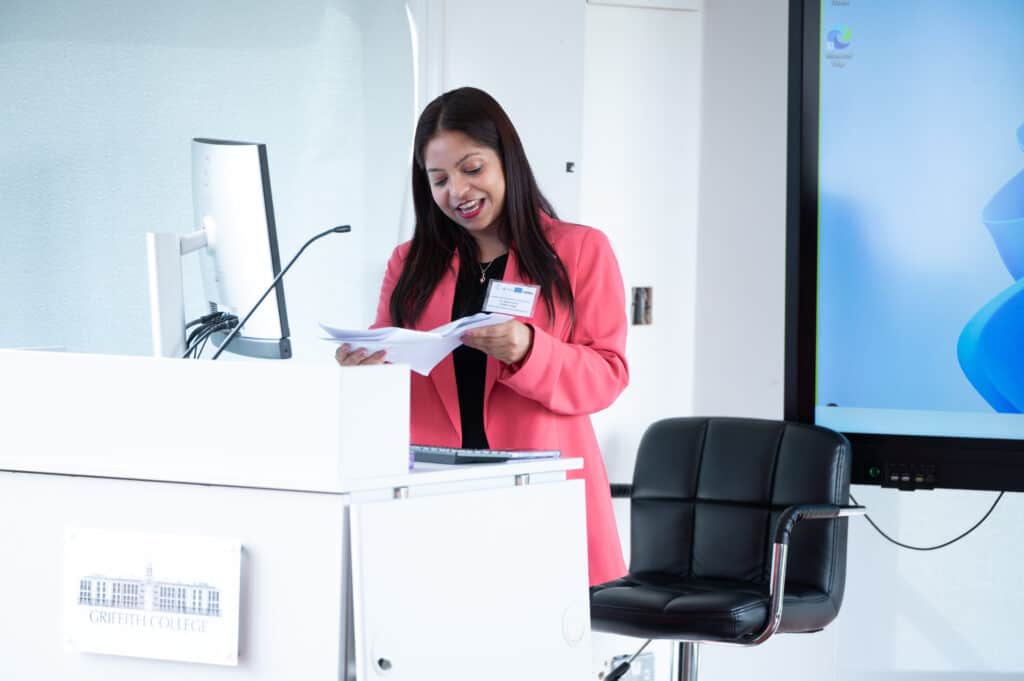By Dr. Sewali Ghosh, Senior Researcher, Griffith College Business and Innovation Hub
Artificial intelligence represents the single greatest change in healthcare since antibiotics. AI technologies are transforming medical practice, care delivery, research methods, and professional training. They promise to overcome persistent challenges in healthcare, including diagnostic accuracy, treatment personalisation, administrative burden, and accessibility to care in underserved communities.
The EU-funded AI2MED project, a collaborative partnership between Griffith College Business and Innovation Hub and the Royal College of Surgeons in Ireland (RCSI), is advancing these transformations in Ireland. This initiative creates crucial linkages between technology development and clinical practice, bringing together expertise that might otherwise remain siloed.
The potential for AI spans the entire care continuum. Whether through predictive analytics identifying at-risk patients before deterioration, computer vision detecting subtle imaging irregularities, or natural language processing extracting relevant data from clinical notes, these technologies enhance human capabilities rather than replacing them. This empowers clinicians to focus on complex decision-making and patient engagement while automated systems handle repetitive data tasks.
Yet significant challenges arise from this transformation. Professionals trained in traditional models need new skills to work effectively alongside intelligent systems. Educational institutions must determine how to integrate AI literacy into already expansive curricula. Ensuring algorithm transparency, decision explainability, and unbiased implementation requires prudent ethical frameworks.
AI Horizon Event: Ireland’s Progress
Ireland’s engagement with these challenges was demonstrated at the recent AI Horizon event held at Griffith College Business and Innovation Hub. The event brought together healthcare professionals, researchers, and technology experts to explore the practical implications of AI integration in medical practice.
“These technologies are no longer the future, but the now,” stated Dr. Marco Alfano, Senior Researcher and Lead of Digital Health and Wellbeing Cluster at Innovation Value Institute, Ireland. Karen Sutton, Head of Law Faculty, Griffith College, explained that “The collaboration between technical experts and healthcare professionals is essential to ensure these systems improve patient outcomes while respecting ethical boundaries.”
Prof. Gozie Offiah from RCSI showcased how surgeons use the Da Vinci Surgical System to perform increasingly complex procedures with greater precision. “What we’re seeing is a fundamental shift in surgical capabilities,” she explained. “AI-assisted robotics isn’t replacing surgical expertise but enhancing it in ways that directly benefit patient outcomes.”
Dr. Harish Kambampati from TU Dublin presented innovative systems enabling dementia patients to live independently through AI-integrated sensor systems. “Our pilot program has shown a 40% increase in the time patients can safely maintain independence at home,” he noted.

Irish Healthcare Transformation
The event highlighted several Irish healthcare transformation initiatives. Dr. Pratiksha Nagar, a Researcher from the National Rehabilitation Hospital, showed the Sláintecare Digital Implementation and presented the ROSIA project’s remote monitoring systems supporting rehabilitation services in underserved populations. “We’ve been able to reach rural communities with specialised rehabilitation services that simply weren’t accessible before,” Dr. Nagar explained.
Dr. Nagar also demonstrated the Icare wound system for enhanced diagnosis and treatment planning for chronic wounds. “What used to take weeks of trial and error can now be assessed and addressed within days,” she noted. “For patients with diabetes and vascular conditions, this improvement is life-changing.”
These presentations revealed that Ireland’s healthcare system is already implementing AI transformation, not merely preparing for it. The technologies discussed were operational, not hypothetical.
Building Trust in AI Healthcare Systems
A key discussion point throughout the event was trust-building in AI implementation. Speakers recognised that technological capability alone is insufficient; practitioners and patients must trust that AI will provide transparent benefits to care outcomes.
The technology can be flawless, but if clinicians don’t trust it or understand how to work alongside it, implementation will fail,” observed Prof Gozie Offiah, Director of Curriculum, School of Medicine, Associate Professor of Surgery, RCSI “Our educational programs need to evolve rapidly to prepare both current and future healthcare professionals.”
The AI Horizon event demonstrated that artificial intelligence has moved from scope to scale within healthcare settings across Europe. With initiatives like AI2MED and the partnership between Griffith College Business and Innovation Hub and RCSI, Ireland is actively participating in this transformation, not merely observing it.
The question is no longer if AI will change healthcare practice, but how this transformation can best serve human needs and values within the complexities of contemporary healthcare delivery.

